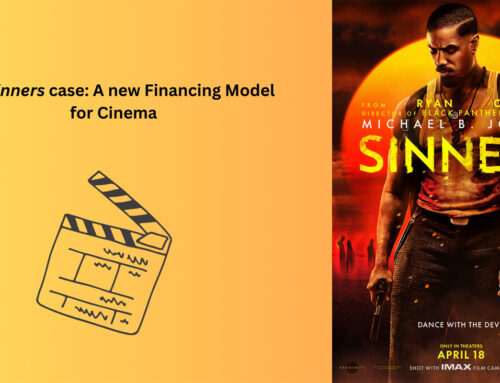Behind Closed Doors: Sony and Paramount’s NDA Signals Shift in Deal Dynamics Away from $26 Billion Acquisition
The recent decision by Sony and Paramount Global to enter into a nondisclosure agreement (NDA) marks a significant milestone in their ongoing negotiations. Previously, Sony and the private e quity firm Apollo kicked off discussions with a preliminary bid of $26 billion, but the current trajectory suggests a narrower focus.
Access to Paramount’s financial records is crucial for both parties to proceed with discussions effectively. This move comes after Paramount’s exclusive talks with Skydance, led by David Ellison, concluded without reaching a deal. Despite this, Skydance remains interested, signaling the studio’s resilience in the negotiation arena. The absence of an NDA from Sony during the interim period following the conclusion of talks with Skydance led to speculation about the company’s wavering interest. Concerns about regulatory obstacles may have contributed to this hesitation.
While Sony’s primary interest lies in acquiring the studio, Apollo’s motivations may lean more towards the studio lot as a potential real estate investment. Regulatory restrictions may necessitate the sale of Paramount Global’s CBS broadcast assets, which Sony may not be able to retain under foreign ownership rules. Furthermore, Apollo’s existing broadcast holdings could potentially exceed federally mandated limits.
Industry insiders value Paramount’s studio lot and support Ellison’s position. However, there are reservations about the proposed $5 billion valuation, especially considering Skydance’s recent capital raise, which valued it at over $4 billion. Consolidating two studios, as envisioned in the Sony deal, faces opposition, reminiscent of the industry’s apprehension when Disney acquired 20th Century Fox. Moreover, such consolidation presents regulatory challenges.
Paramount Global shareholders express dissatisfaction with the potential Skydance deal, as it leaves the company public with the majority of proceeds directed towards Redstone to acquire her controlling interest. Despite attempts to placate shareholders by offering to purchase some common shares, discontent remains prevalent. Legal action threats loom, although the viability of such suits remains uncertain.
The proposed Skydance deal offers a temporary solution, maintaining the company’s integrity initially while injecting much-needed capital into its debt-laden structure. Jeff Shell is slated to assume leadership under David Ellison’s oversight. Shareholders initially favored the $26 billion cash offer from Sony and Apollo. However, with this option no longer available, their response to the current negotiations remains uncertain. As Sony and Paramount move forward with their discussions under the umbrella of the newly signed NDA, the landscape of the deal seems to be evolving, indicating a departure from the initial $26 billion bid for the entire company.
Source: Deadline
Share:
The recent decision by Sony and Paramount Global to enter into a nondisclosure agreement (NDA) marks a significant milestone in their ongoing negotiations. Previously, Sony and the private e quity firm Apollo kicked off discussions with a preliminary bid of $26 billion, but the current trajectory suggests a narrower focus.
Access to Paramount’s financial records is crucial for both parties to proceed with discussions effectively. This move comes after Paramount’s exclusive talks with Skydance, led by David Ellison, concluded without reaching a deal. Despite this, Skydance remains interested, signaling the studio’s resilience in the negotiation arena. The absence of an NDA from Sony during the interim period following the conclusion of talks with Skydance led to speculation about the company’s wavering interest. Concerns about regulatory obstacles may have contributed to this hesitation.
While Sony’s primary interest lies in acquiring the studio, Apollo’s motivations may lean more towards the studio lot as a potential real estate investment. Regulatory restrictions may necessitate the sale of Paramount Global’s CBS broadcast assets, which Sony may not be able to retain under foreign ownership rules. Furthermore, Apollo’s existing broadcast holdings could potentially exceed federally mandated limits.
Industry insiders value Paramount’s studio lot and support Ellison’s position. However, there are reservations about the proposed $5 billion valuation, especially considering Skydance’s recent capital raise, which valued it at over $4 billion. Consolidating two studios, as envisioned in the Sony deal, faces opposition, reminiscent of the industry’s apprehension when Disney acquired 20th Century Fox. Moreover, such consolidation presents regulatory challenges.
Paramount Global shareholders express dissatisfaction with the potential Skydance deal, as it leaves the company public with the majority of proceeds directed towards Redstone to acquire her controlling interest. Despite attempts to placate shareholders by offering to purchase some common shares, discontent remains prevalent. Legal action threats loom, although the viability of such suits remains uncertain.
The proposed Skydance deal offers a temporary solution, maintaining the company’s integrity initially while injecting much-needed capital into its debt-laden structure. Jeff Shell is slated to assume leadership under David Ellison’s oversight. Shareholders initially favored the $26 billion cash offer from Sony and Apollo. However, with this option no longer available, their response to the current negotiations remains uncertain. As Sony and Paramount move forward with their discussions under the umbrella of the newly signed NDA, the landscape of the deal seems to be evolving, indicating a departure from the initial $26 billion bid for the entire company.
Source: Deadline









